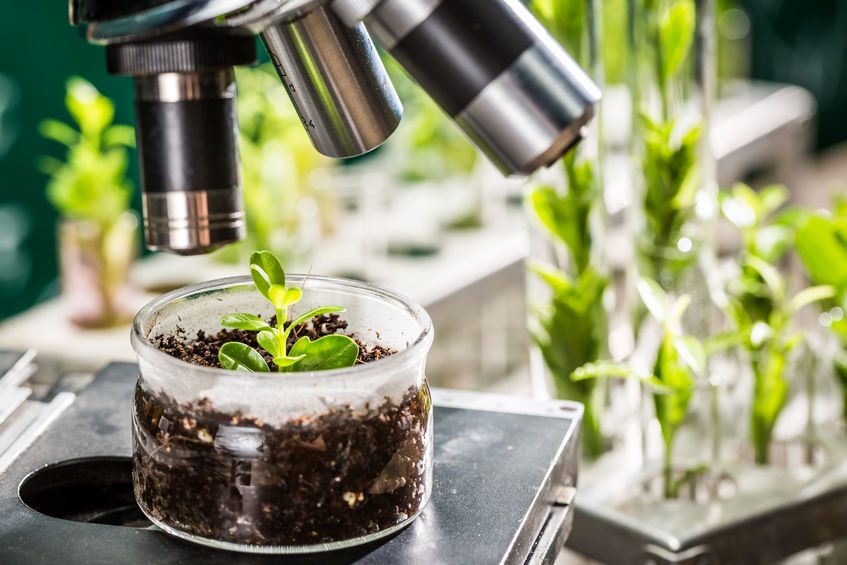
A commitment is needed from government to ensure that 'essential' investment in scientific advancement continues beyond Brexit, the NFU says.
The next 30 years will be one of the most important points in the history of global agriculture.
Farmers will need to produce 60-100% more food, using less land, less water and fewer agricultural inputs.
Add to that the issue of climate change, the NFU says funding in science and innovation is 'crucial' to the UK farming industry's future.
Scientists in the UK are already working on projects ranging from soil health and crop protection to sustainable and resilient supply chains.
But the future of such projects and the level of funding remains unknown once the UK leaves the European Union.
The NFU points to the fact that a significant amount of the funding for this work currently comes from European research programmes that may not be accessible post-Brexit.
Speaking on the first day of the Great Yorkshire Show, NFU President Minette Batters said scientific advances must deliver practical benefits on the ground.
“While it is crucial that ‘blue sky’ research is undertaken, it is just as important that scientific advances deliver practical benefits on the ground.
“Getting this right will be fundamental in achieving our climate change aspirations – when we expect up to 25% of the net zero target to be achieved through productivity and efficiency gains.”
Mrs Batters added: “We need government to help us create the right economic and commercial conditions for scientists and farmers alike to flourish.
“Aside from driving our climate change response, productivity improvements also have the potential to deliver important economic gains – helping deliver more highly skilled jobs in farming, increased output and improved export performance,” she said.
Adding his voice to the debate is Professor Duncan Cameron, Co-Director of the new Institute of Sustainable Food at Sheffield University.
He said Yorkshire is leading the world in solutions to feed the growing population while protecting and restoring the environment.
“Cutting-edge academic research directly informs the development of technologies that will help us address future challenges and underpins the development of products that will be available on farm in the next 10, 20 or 30 years.
“To build strong research, engagement the farming community is crucial. This helps amplify their concerns and ambitions, and develop solutions that are fit for purpose and ready to deploy in solving real world problems,” Professor Cameron said.
